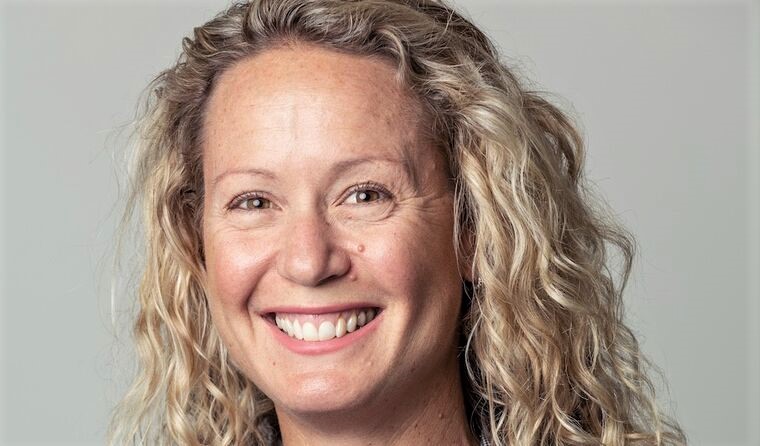News
Boosting vaccine preparedness amid increasing hesitancy
New research aims to tackle vaccine hesitancy by enabling transparency and confidence through improved communication strategies.
 Australians’ willingness to receive the COVID-19 vaccine has decreased by 8.2% in the last five months.
Australians’ willingness to receive the COVID-19 vaccine has decreased by 8.2% in the last five months.
Australia’s long-anticipated COVID-19 vaccine rollout has commenced, with phase 1b now underway.
Among the myriad logistics involved, vaccine hesitancy and refusal have been recognised as major barriers to uptake and reaching herd immunity.
Willingness to be vaccinated against COVID-19 has decreased for Australians since the last half of 2020, falling from 74.4% in October 2020 to 66.2% in February 2021.
In January 2021, 21.7% of Australians said they ‘probably or definitely would not’ get a safe and effective vaccine – a significant increase from the 12.7% who gave the same responses in August 2020.
The Murdoch Children’s Research Institute (MCRI) is leading a study to address issues linked to vaccine hesitancy by developing communication strategies for patients and healthcare professionals.
By using focus groups and surveys, the anticipated outcomes of the study are to provide a better understanding of:
- attitudes and potential responses of priority groups towards the vaccine, including possible hesitancy and concerns
- communication channels through which priority groups want to receive vaccine information and what factors will influence vaccine decision-making and uptake
- primary care providers’ willingness to make recommendations to vaccinate for patients, and facilitate delivery and strategies to promote confidence in providers
- communication strategies and resources co-designed with priority groups
- establishment of an ongoing survey platform to prospectively track vaccine sentiment, safety and uptake, and inform future communication.
An October 2020
Australian Journal of General Practice article looked at the role of COVID-19 vaccination and disseminating clear communication in general practice.
‘In the face of rising vaccine misinformation and anti-vaccination activity, as well as disruption to routine vaccination services, we still need strategies to increase and maintain vaccination uptake in Australia and globally,’ author Associate Professor Margie Danchin wrote.
Building on these strategies as principal researcher of the MCRI study and Group Leader, Vaccine Uptake at MCRI, Associate Professor Danchin told
newsGP that to ensure vaccine acceptance and uptake, it is critical to build trust and develop effective communication strategies.
‘GPs are at the forefront of the vaccine rollout, prioritised to both receive and deliver COVID-19 vaccines,’ she said.
‘This is the first and largest research study in Victoria to assess the specific concerns, questions, decision-making influences, information needs and preferences of GPs and their patients.’
 Associate Professor Margie Danchin hopes her research will give GPs a platform to share their experiences and concerns regarding vaccination uptake.
Associate Professor Margie Danchin hopes her research will give GPs a platform to share their experiences and concerns regarding vaccination uptake.
Associate Professor Danchin anticipates that development of the communication strategies will be led considerably by GPs’ insights, which will directly inform communication materials and training to support them and other healthcare professionals to answer questions about vaccination.
‘GPs are highly trusted sources of information for the public, and they will be crucial in answering questions and addressing concerns as the vaccines are rolled out,’ she said.
‘This research will [also] help us to understand their specific concerns and information needs around COVID vaccines to ensure they have the confidence to accept vaccination themselves.’
Associate Professor of General Practice at the University of Melbourne and co-researcher, Jo-Anne Manski-Nankervis, told
newsGP that given its central role in the vaccine rollout, engagement with general practice is key.
‘We know that there will be some Australians who are hesitant about receiving the vaccine,’ she said.
‘Developing a communication strategy that helps to explain the risks and benefits so that Australians feel comfortable about receiving the vaccine is going to be important.
‘The contribution of GPs in this [research] is critical, given their long-term relationships with patients and communities, and given that they will be having these conversations with patients every day.’
Associate Professor Danchin said the research will also give GPs a platform to share their experiences and requests.
‘As the [vaccine] rollout and the pandemic itself continue to evolve, the Victorian Government can respond to new concerns and adapt the communication strategies to meet the needs of primary care,’ she said.
Log in below to join the conversation.
AJGP COVID vaccine hesitancy research
newsGP weekly poll
Which of the following areas are you more likely to discuss during a routine consultation?